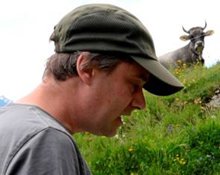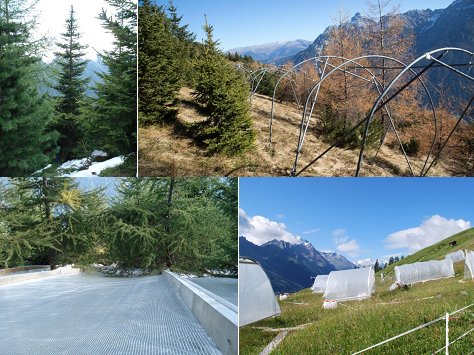
Roland Hasibeder is PhD candidate and research associate in the group Plant, Soil and Ecosystem Processes headed by Michael Bahn. This research unit aims at understanding the responses of biogeochemical processes related to the carbon, nitrogen and water cycles to changing climate and land use. Thereby it focuses on the physiological mechanisms in plants and soil which drive these responses and seeks to deepen the understanding of the role of plants and plant-soil interactions in ecosystem processes. Empirical data come from field experiments carried out in a wide range of ecosystems such as grasslands or mountain forests, and includes long-term observation as well as manipulation experiments.
Roland’s PhD thesis focuses on a fundamental process within the plant-soil system of ecosystems, namely carbon allocation. Carbon, taken up by plants in the form of carbon dioxide, is the basis of supplying the vast majority of physiological processes within plants and soils with energy, as well as the basic element of biomass built up by ecosystems. Therefore, the demand for carbon in ecosystems, resulting from the need for sugars to maintain respiration in plants and soil microbes, depends on many environmental factors and is underlain by specific daily and seasonal patterns. The same holds true for the uptake of carbon by photosynthesis. In addition, carbon usage and uptake are related to each other since photosynthesis requires the build-up and maintenance of plant biomass, especially its green tissues, which itself depends on the carbon gain of uptake.

Besides working on his PhD thesis Roland is engaged as a research assistant in field experiments carried out at several sites in the mountains of Stubai valley. Currently he is coordinating the experimental activities of the project ‘ClimLUC: Climate extremes and land-use change: effects on ecosystem processes and services’ funded by ÖAW (https://www.uibk.ac.at/ecology/forschung/climluc.pdf). This project examines the influence of land-use intensity, represented by managed and abandoned (formerly managed) grassland and forest, on the ability of ecosystems to withstand, and recover from, climatic extremes such as severe summer drought.
Plant, Soil and Ecosystem Processes

